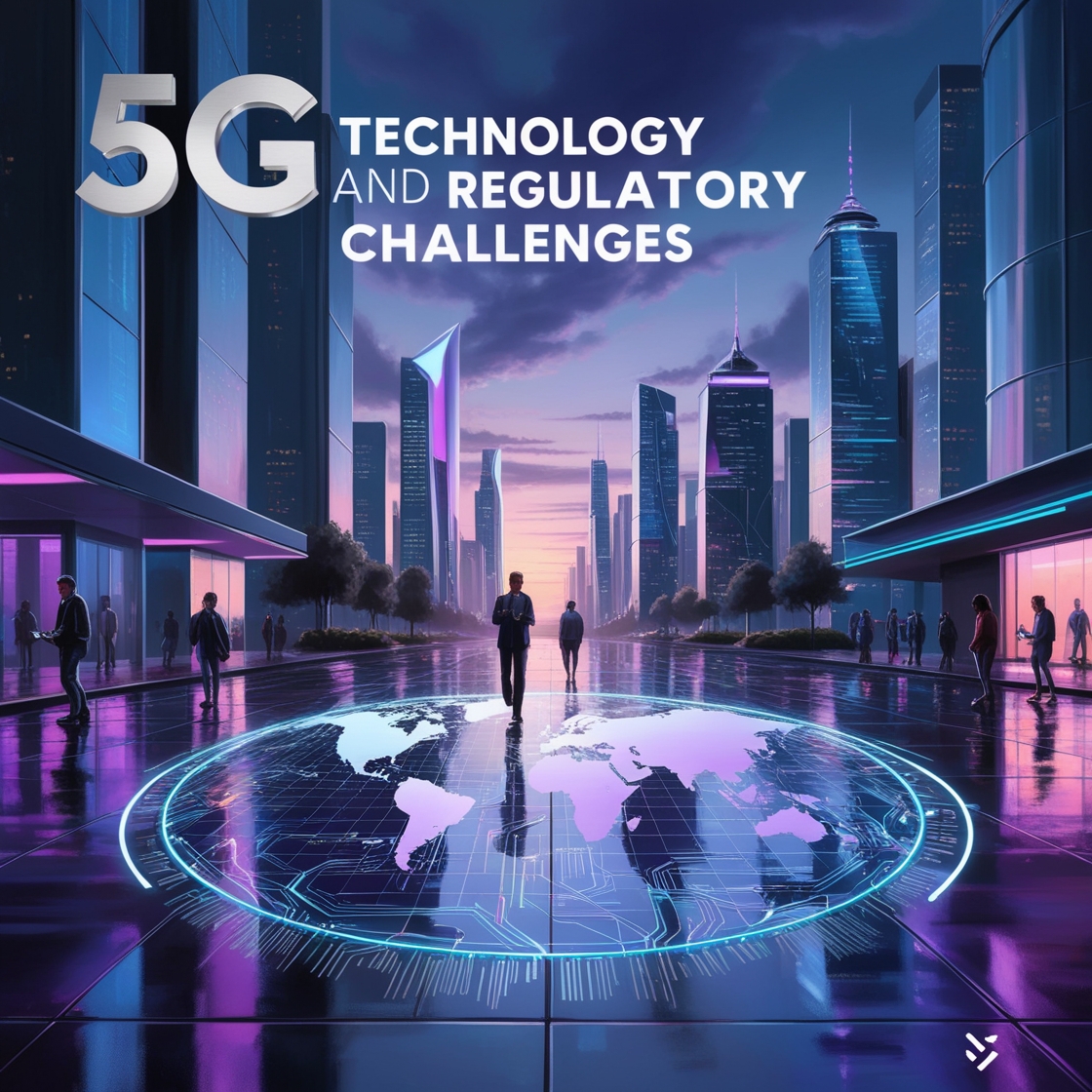Introduction
When it comes to technological advancements, 5G technology is a game changer. This next-generation mobile network promises faster speeds, lower latency, and the capacity to connect many more devices simultaneously. However, as with any disruptive technology, there are regulatory challenges that need addressing. Why is regulation so vital for 5G? It ensures that the technology is deployed safely, fairly, and in a manner that benefits society as a whole. Let’s explore the fascinating world of 5G technology and the challenges it faces in the regulatory landscape.
Overview of 5G Technology
Key Features of 5G
5G technology isn’t just about speed; it’s about a complete transformation of how we connect. With theoretical speeds up to 10 gigabits per second, it allows for almost instantaneous data transfer. Think about it—downloading a full-length movie in seconds! Beyond speed, 5G offers enhanced reliability, reduced latency (the time it takes for data to travel from one point to another), and the ability to support a massive number of devices in a small area.
Applications of 5G Technology
The applications of 5G are vast and varied. In healthcare, it enables remote surgeries and telemedicine, allowing doctors to operate on patients thousands of miles away. In smart cities, 5G enhances connectivity for everything from traffic management systems to emergency services. The possibilities seem endless, making it a crucial technology for the future.
Regulatory Landscape
Current Regulations Affecting 5G Technology
The regulatory environment for 5G is complex and varies by country. In the U.S., for example, the Federal Communications Commission (FCC) is responsible for managing spectrum allocation, which is essential for 5G networks. In Europe, regulations focus on ensuring that the deployment of 5G is in line with the EU’s digital strategy. Regulations aim to strike a balance between fostering innovation and ensuring consumer protection.
Key Regulatory Bodies Involved
Several key regulatory bodies oversee 5G technology, including the FCC in the U.S., the European Telecommunications Standards Institute (ETSI) in Europe, and the International Telecommunication Union (ITU) globally. These organizations play crucial roles in setting standards, managing frequency allocations, and ensuring compliance with laws that govern telecommunications.
Challenges Faced by 5G Technology
Spectrum Allocation Issues
One of the most significant challenges for 5G technology is spectrum allocation. The radio frequency spectrum is a limited resource, and ensuring that different entities can use it without interference is a complex task. Governments must balance the needs of telecom companies with other users of the spectrum, such as satellite services and public safety communications. This can lead to delays in the rollout of 5G services.
Compliance Costs for Service Providers
Compliance with regulations can be costly for service providers. The expenses associated with meeting regulatory requirements can be particularly burdensome for smaller companies. This financial strain can slow down innovation and lead to a less competitive market, ultimately affecting consumer choices.
Public Health Concerns and Misinformation
Public health concerns regarding 5G have been rampant, with misinformation often leading to fear and resistance. Some believe that 5G technology poses health risks due to the radiation emitted. Although scientific consensus indicates that 5G is safe, addressing these concerns is crucial for successful deployment. Regulatory bodies must work to educate the public and dispel myths surrounding 5G technology.
Case Studies
Successful 5G Implementation
Take South Korea as an example. It was one of the first countries to launch nationwide 5G services. The government worked closely with telecom providers to ensure a smooth rollout, focusing on compliance with regulations and public engagement. The result? South Korea now boasts one of the most advanced 5G networks globally, driving innovation in various sectors.
Regulatory Challenges Faced by 5G Companies
On the other hand, we have Huawei, a prominent player in the global 5G market. The company has faced regulatory scrutiny and bans in several countries due to concerns over security and privacy. These regulatory challenges can hinder its ability to compete effectively, impacting the broader 5G ecosystem.
Future of 5G Technology and Regulations
Emerging Trends in 5G
As we look to the future, several trends are emerging in the 5G landscape. For instance, there’s a growing focus on private 5G networks for enterprises, allowing businesses to manage their own networks for enhanced security and control. Additionally, advancements in edge computing will work hand in hand with 5G, allowing for faster processing and data handling closer to the source.
Potential Regulatory Changes
Regulations will likely continue to evolve as technology advances. We may see more streamlined processes for spectrum allocation and a focus on ensuring consumer protection without stifling innovation. The challenge will be to develop regulations that adapt to the fast-paced nature of technological change while addressing public concerns.
Conclusion
In conclusion, while 5G technology holds tremendous promise for transforming our digital landscape, it is not without its regulatory challenges. From spectrum allocation to compliance costs and public health concerns, stakeholders must navigate a complex environment. Collaboration among governments, industry players, and the public is essential to harness the full potential of 5G technology while ensuring safety and fairness.
FAQs
What are the main regulatory challenges facing 5G?
Key challenges include spectrum allocation, compliance costs for service providers, and public health concerns fueled by misinformation.
How does 5G technology differ from previous generations?
5G offers significantly faster speeds, lower latency, and the capacity to connect more devices compared to 4G and earlier technologies.
What is the role of government in regulating 5G?
Governments oversee spectrum allocation, set regulations to ensure consumer protection, and work to foster an environment conducive to technological innovation.
How can companies prepare for future regulatory changes in 5G?
Staying informed about regulatory developments, investing in compliance infrastructure, and fostering transparency can help companies adapt.
What impact does 5G have on public health?
Current scientific consensus indicates that 5G is safe, but addressing public health concerns and misinformation is critical for successful deployment.
